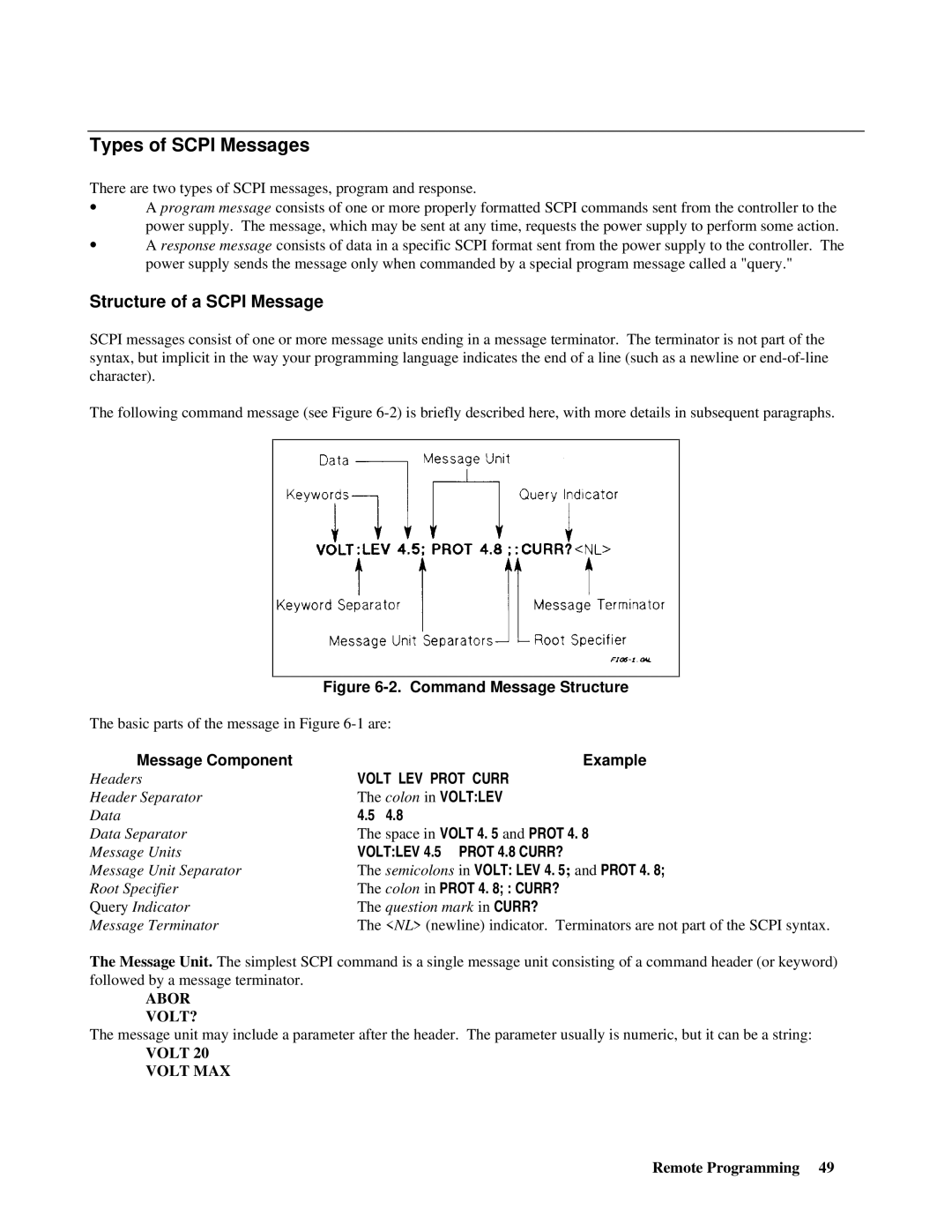
Types of SCPI Messages
There are two types of SCPI messages, program and response.
∙A program message consists of one or more properly formatted SCPI commands sent from the controller to the power supply. The message, which may be sent at any time, requests the power supply to perform some action.
∙A response message consists of data in a specific SCPI format sent from the power supply to the controller. The power supply sends the message only when commanded by a special program message called a "query."
Structure of a SCPI Message
SCPI messages consist of one or more message units ending in a message terminator. The terminator is not part of the syntax, but implicit in the way your programming language indicates the end of a line (such as a newline or
The following command message (see Figure
Figure 6-2. Command Message Structure
The basic parts of the message in Figure
Message Component | Example |
Headers | VOLT LEV PROT CURR |
Header Separator | The colon in VOLT:LEV |
Data | 4.5 4.8 |
Data Separator | The space in VOLT 4. 5 and PROT 4. 8 |
Message Units | VOLT:LEV 4.5 PROT 4.8 CURR? |
Message Unit Separator | The semicolons in VOLT: LEV 4. 5; and PROT 4. 8; |
Root Specifier | The colon in PROT 4. 8; : CURR? |
Query Indicator | The question mark in CURR? |
Message Terminator | The <NL> (newline) indicator. Terminators are not part of the SCPI syntax. |
The Message Unit. The simplest SCPI command is a single message unit consisting of a command header (or keyword) followed by a message terminator.
ABOR
VOLT?
The message unit may include a parameter after the header. The parameter usually is numeric, but it can be a string:
VOLT 20
VOLT MAX
Remote Programming 49
